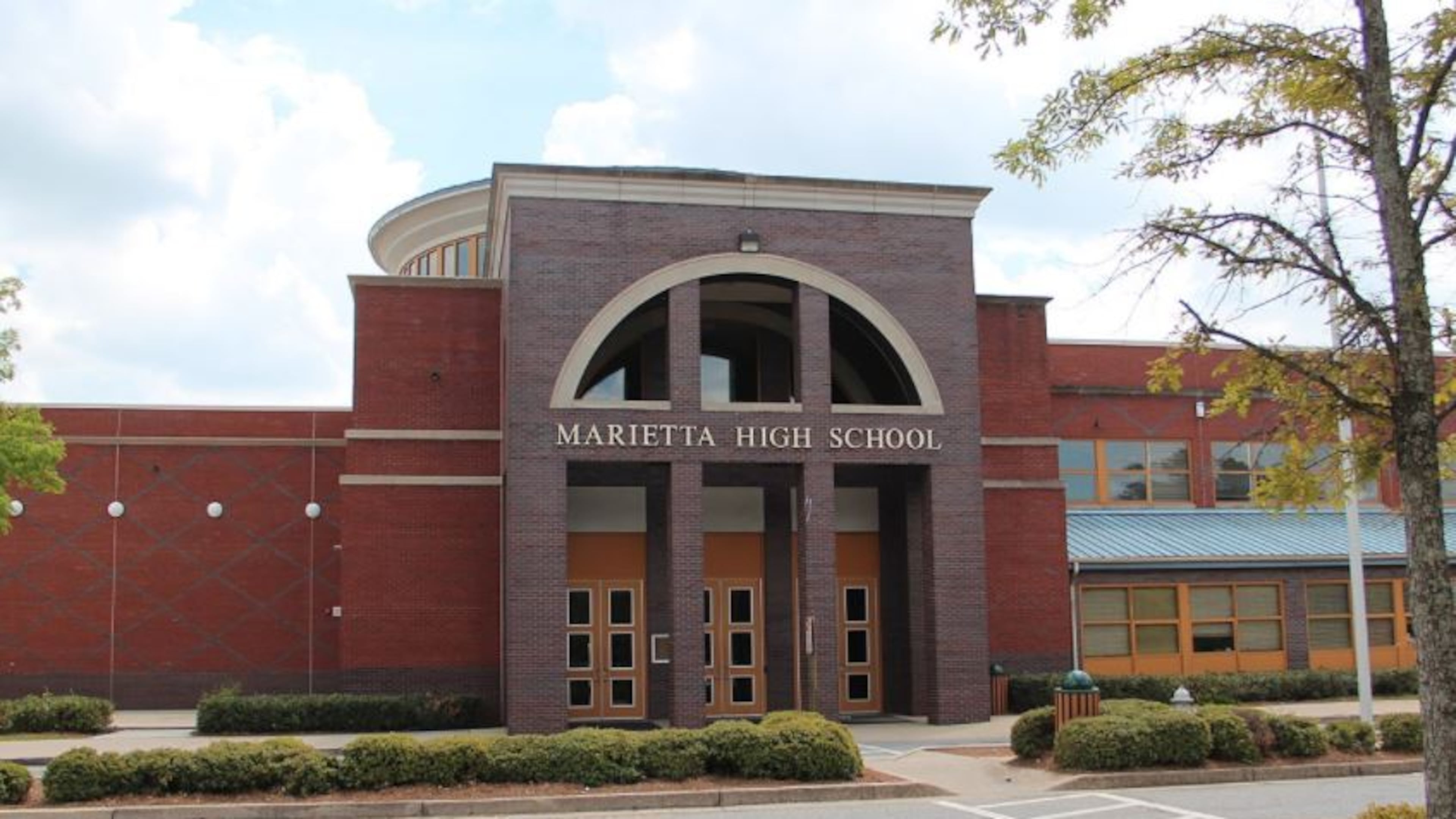Telling the story of resegregation through Marietta High School

Should a school district losing middle-class white families labor to lure them back or focus on the students now walking through its doors?
That's one of the big questions in a scholarly new book that chronicles the story of resegregation of Southern schools and communities through Marietta High School.
Marietta High integrated 10 years after the U.S. Supreme Court ruled that separate but equal schools were inherently unequal and thus unconstitutional. Following the Brown v. Board of Education of Topeka, from the mid-1970s into the early 1990s, Marietta High was a racially balanced high school. (Even while neighborhoods remained largely segregated.)
Today, the school is experiencing resegregation from the surge in the black and Latino residents in the area and the loss of white families to private schools or east Cobb. The school is 44 percent black, 33 percent Hispanic and 17 percent white, according to state data.
Growing up in Cobb County, Ruth Carbonette Yow watched those shifts from afar as a private school student. After earning a doctorate in in American studies and African-American studies from Yale University and coming to work at Georgia Tech, Yow began to research justice struggles and public education, focusing on her own back yard.
The product of that inquiry is her recently released book, "Students of the Dream: Resegregation in a Southern City."
In her six years volunteering with Marietta YELLS, a nonprofit to help kids and teens become leaders in their communities, and in her more than 100 interviews for the book, Yow ran into the sentiment that, if Marietta High just did the right things, affluent white families would return. Atlanta Public Schools succeeded with that strategy in its intown communities, as evidenced by the now bursting Grady High School cluster.
“In a one high school district (like Marietta), the policies at the high school need to reflect the issues and challenges faced by the students that already compose the majority of the system. At Grady, demographics and size mean that targeting affluent parents is not pie-in-the-sky — it is reflective of actual population trends and changes,” said Yow in an interview.
“Most families who can choose private aren’t going to choose Marietta High,” Yow said. “Those families can’t be the golden ring. The conversation has to stop revolving around staunching the bleed of folks with more choice, those mostly affluent families. Because it can’t.”
Yow examines Marietta’s efforts to appeal to middle-class families, including the introduction a rigorous International Baccalaureate program. Such academic tracks or magnet programs risk turning into mini ivory towers because of subtle gate-keeping that locks out poor children, she said.
“Parents who aren’t clued in don’t realize a test their children take in third or fourth grade may decide whether they should be placed in pre-IB or the middle school IB program,” she said.

In observing Marietta High for several years, Yow witnessed what she saw as positive changes by former principal Leigh Colburn. “She understood that the seniors who walk across the stage at graduation and the seniors who never cross that stage are all members of our community. She resisted evaluating schools based on test scores and thought about the most vulnerable students and how they could weather the storms.”
One way to arm students for the storms, said Yow, is more comprehensive support of the increasing ranks of undocumented students at Marietta High. Yow cites the example of the Cobb district's posting of "The Ultimate Guide for College Bound Undocumented Georgia Students," which explains existing law and also offers resources for educators and counselors.
“Our public schools are profoundly over-burdened, but, because they do the important work of taking all comers, they must be equipping their professionals to support the most vulnerable students in our systems,” she said.
The vulnerable students in Marietta High face serious challenges, including the risk of deportation, discrimination in the justice system and low wages, said Yow. Since the Brown decision, the city of Marietta and its high school have seen seismic cultural, political and economic changes. “You can’t stop resegregation in Marietta,” said Yow, “but you can preserve educational quality and promote education equity by different means among a population that is now mainly students of color.”



